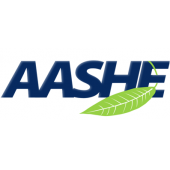
In this broad overview of where sustainability curricula in higher education currently stands and where it might go, Paul Rowland covers the bases of how the varied and diverse institutions of higher learning are integrating or incorporating sustainability ideas. He concludes that, while currently standing outside the status quo, sustainability proponents and their ideas are increasingly accepted and should, ultimately, hope to become part of the cultural norm. He compares this process to what has occurred with diversity studies and technology studies.
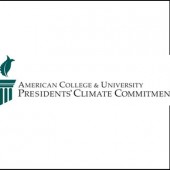
Anthony Cortese and Richard Cook’s clarion call for colleges to join the Presidents’ Climate Commitment lays out the stakes in no uncertain terms. They succinctly define what sustainability education really means in terms of every-day concrete changes for which every institution of higher learning should strive.
Continue Reading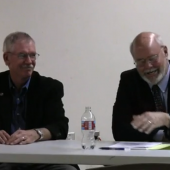
Jim Horton, President of Yavapai College, and Dan Garvey, President of Prescott College, share the stage in this forum focusing on how they and their institutions respond to the demands for sustainability within our current social, economic and ecological context. What unique challenges do a community college and a private liberal arts college face? What shared visions emerge? What unique roles do each of these institutions play in fostering sustainability for themselves, and for the community that they serve?
Continue Reading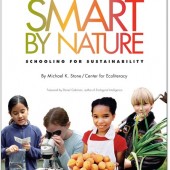
In this inspiring essay, Capra and Stone take us beyond the trite use of the word “sustainability” to an operational way of applying it in the educational setting. They outline four universal principles that should guide sustainability education, each with a profound implication for how learning occurs. They then show how the principles can be applied through a “curriculum that is anywhere learning occurs,” including lunchtime in the cafeteria and the design of the school campus. Their book Smart by Nature: Schooling for Sustainability expounds on the principles and learning-anywhere ideas laid out in brief here.
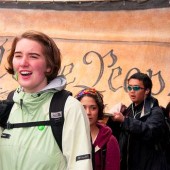
Riki Ott uses “ultimate civics” to inspire students to take action and make a change. Here, she puts forth the foundation for her curriculum that brings students out of the classroom and into the political arena, with the goal of eliminating our addiction to petroleum.
Continue Reading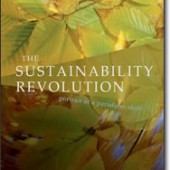
In this short succinct and insightful piece, Andres Edwards elegantly pushes for moving beyond “green” economics into a solution-based approach to sustainability issues. He calls for a view that puts humans and their economics squarely back into nature in a way that will lead to “reliable prosperity” through “SPIRALS” initiatives that are: Scalable, Place-based, Intergenerational, Resilient, Accessible, Life-affirming, and involving Self-care
Continue Reading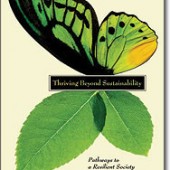
Rick Medrick gives context for Andres Edwards’ new book that takes us beyond sustainability to thriveability. The book suggests that, as the sustainability movement gathers force in the realm of all 3 “E’s” (ecological, economic, social equity), we are at a point of moving towards establishing a newly organized social and ecological environment. Strategies that will allow this to be a thriving environment, according to Edwards, are “SPIRALS:” Scalable, Place-making, Intergenerational, Resilient, Accessible, Life-affirming, and Self-caring.
Rick Medrick nos da un marco de referencia para el libro de Andres Edwards que nos lleva mas allá de la sustentabilidad a la “thriveability.” El libro propone que, mientras el movimiento de sustentabilidad gana fuerzas en el área de los tres “E’s” (ecológico, económico, equidad social), estamos al punto de establecer un ambiente social y ecológico mejor organizado. Las estrategias que nos permita crear este ambiente de superarse, según Edwards son “SPIRALS”: Escalable, Del Lugar, Intergeneracional, Resiliente, Accesible, Afirmando la Vida, y Auto-Cuidando.
Continue Reading
In this thoughtful, and fundamentally practical, down-to-earth essay, Christopher Haines puts architects squarely on the front-lines of sustainability education. He shows us, with real applications based on thoughtful inter-disciplinary analysis, how the complexities an architect faces in designing a building extend their tentacles into every aspect of sustainability—from environment to economics to social and psychological considerations.
Continue Reading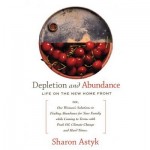
Dennis Lum helps put Sharon Astyk’s book in a historical context and brings forth its pessimistic premise along with its optimistic prescription. While accepting that the crisis is here, and the oil reliance has reached its peak, Astyk sees a special place for the role of women in providing food security while re-inventing a truly productive home environment.
Continue ReadingAbstract: The national focus in K-12 education currently is on core subject mastery and testing; this is a tough environment in which to instill and expand sustainability education. Even those educators committed to sustainability education often have difficulty finding ways to incorporate what is considered by many to be ‘add-on’ material. Nevertheless our experience shows […]
Continue Reading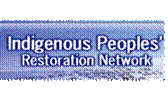
In this deeply articulate analysis, Dennis Martinez argues that Traditional Ecological Knowledge (TEK) of indigenous communities can be complementary to Western science, but“ bridging” or “integration” with Western Science will inevitably lead to second-rate status for TEK. The unique and powerful, place-based and ancient, traditional ways of knowing are based on the same fundamental human ways of analyzing the natural world. But the language used to conduct, express and translate indigenous understanding is in danger of loss to oppression and assimilation.
Continue Reading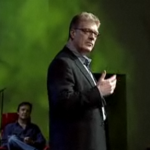
The TED (Technology, Entertainment, Design) website brings videos of world-class TED conference talks to everyone’s finger-tips. Something about the website gets us hooked, and the daily inspiration for ourselves, and our students, keeps us coming back for more.
Continue Reading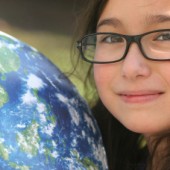
Susan Santone simply and elegantly tells us how sustainability, or ecological, economics can be made real for K-12 education. She shows us how easy it is to bring the very real, and fundamental, conceptual breakthroughs offered by sustainability economics to a grade-school curriculum through simple applicable exercises that children will easily relate to.
Continue Reading
Chet Bowers case study course pushes the envelope of curriculum reform by challenging our “taken-for-granted” thinking. His students are first encouraged to confront the innate assumptions in traditional curricula and then asked to seek ways in which a true cultural commons can be brought into a fundamentally reformed curriculum that profoundly addresses sustainability issues.
Continue Reading
Whoever would study medicine aright must learn of the following subjects. First he must consider the effect of the seasons of the year and the differences between them. Secondly he must study the warm and the cold winds, both those which are in common to every country and those peculiar to a particular locality. Lastly, […]
Continue Reading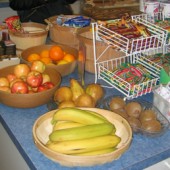
In this case study at Caitlin Gabel School in Portland, Oregon, Eric Shawn and George Zaninovich present a comprehensive, integrated and hands-on curriculum that has used food sustainability issues to transform the school campus and cafeteria. They provide simple, interesting and apt curriculum project examples for all grade levels from K-12.
Continue Reading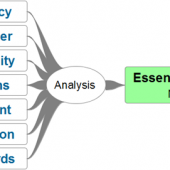
Bryan Nichols calls out to JSE readership to get involved in defining what essential ecoliteracy includes. His comprehensive, interactive methodology has worked from a literature search-and-survey analysis to create a mind-map of the domains and components of essential ecoliteracy. Readers can find out more here; then play with the mind-map online and send Nichols an online or print survey.
Continue Reading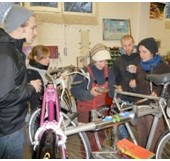
In their action project seminar course, Daniel Fischer and Marco Rieckmann show how students applied the principles of sustainable consumption while initiating several impressive on-campus programs to help the community obtain food, clothing and transport in a sustainable fashion. Using a solid theoretical foundation, the course shows how to integrate the formal and non-formal aspects of sustainability education.
Continue Reading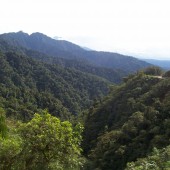
Carla Cardenas brings a startlingly significant feature of the new Ecuadorian constitution to our attention—rights for nature—and provides a thought-provoking analysis of the legal implications. She makes a good case for these kinds of rights as a driving force for real change in our overall societal relationship—at its core based on legal constraints that take their roots in a country’s constitution—with nature.
Continue Reading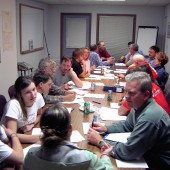
Greg Smith shows us, through his numerous interesting real-life educational stories, how place- and community-based education can bring a true spirit of opportunity to public school students. He argues that true sustainability will come about through local efforts of the current generation of students to guide and form our future.
Continue Reading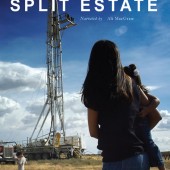
Mark Seis brings the important messages of the film, Split Estates, to our attention in this interesting review. He sees four important warning messages from the film regarding the development of natural gas, what is so commonly viewed as the “cleanest” of fossil fuels.
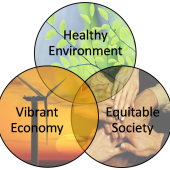
Nolet and Wheeler make the case for a shift from environmental education to sustainability education in K-12 curricula. They provide the legislative and policy details for that shift in Washington State and discuss some of the current curricular initiatives that meet the mandate for sustainability education.
Continue Reading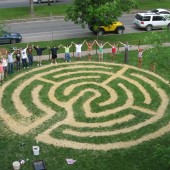
In this inspiring photo essay, Rebecca Clausen demonstrates the power of being in the field and learning sustainability in a holistic, hands-on way that starts students down the road to primary production, upon which our future will depend.
Continue Reading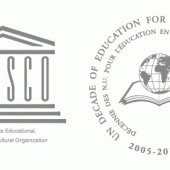
The Education for Sustainable Development (ESD) community, argues Robert Bray, is shy to confront controversy. In this quick review of three controversial issues—population control, the role of science, and limits to growth—he quickly points out how important it is to embrace controversy as a way to arrive at sound policy.
Continue Reading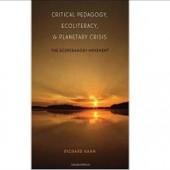
Beth Pollock provides the historical roots and inspiration of Kahn’s Ecopedagogy in Freire and Illich, giving us a good pre-view of what to expect in the book. She finds Kahn’s call for a new kind of pedagogy, founded in these greater thinkers, timely as we work towards establishing educational processes that provide the necessary literacy to face ecological and sustainability issues now and in the future.
Beth Pollock nos indica las raíces históricas y la inspiración por la formulación del “Ecopedagogía” de Richard Kahn, basado en Freire y Illich, dándonos un buen previsto de que los se espera en el libro. Ella encuentra algo pertinente en la llamada de Kahn para una nueva pedagogía, fundada en estos grandes filósofos, mientras trabajamos hacia el establecimiento de un proceso educativo que provee el entendimiento necesario para enfrentar los asuntos ecológicos y de sustentabilidad actualmente y en el porvenir.
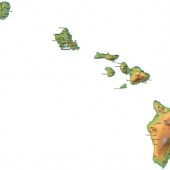
John Cusick reports on the compromises needed to bring place-based and hands-on sustainability curricula into at-risk schools where teachers and administers feel constrained by No Child Left Behind. The local Festival and Science Fair exhibits he describes help meet this challenge, for the theme of watershed education in Hawai‘i.
Continue Reading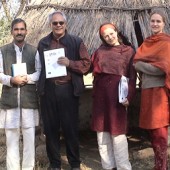
Pramod Prajuli takes down the ten streams of his life journey that brought him to Prescott Arizona and a life dedicated to sustainability education.
Continue Reading
With elegant simplicity, Rick Medrick makes the case for the importance of transformational change as part of our education process to bring about sustainability. He brings forth the need for creating learning environments where real, transformational change, can happen. And he invokes the role of the “servant-leader” in establishing those environments as part of an organic and evolutionary change process that we can help to generate.
Con una sencillez elegante, Rick Medrick hace el caso por la importancia del cambio transformacional como parte de nuestro proceso educativo para llegar a la sustentabilidad. Trae al frente la necesidad de crear ambientes de aprendizaje a donde el cambio verdadero transformacional puede ocurrir. Y el invoca el papel del “líder-sirviente” en establecer estos ambientes como parte de un proceso de cambio orgánico y evolutivo que nosotros podemos ayudar en generar.
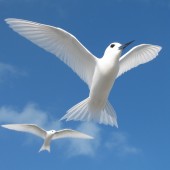
Kathy Lamborn shares her profound wilderness moments with us, much like she does with her middle school students in the classroom. But she goes on to make the case that the value of wilderness is not just for its own sake but for its power to elicit these moments and thereby bring us “to our knees with reverence,” helping us to recognize the call for a just and compassionate—“sustainable”—life.
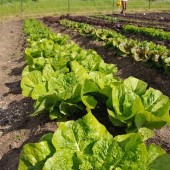
In an insightfully pragmatic way, John Gookin shows us how we can incorporate sustainability concepts into an innovative curriculum like that of NOLS without forcing the issue. He espouses the NOLS “organic” approach to curriculum design, where each taught element serves a real purpose, while finding great instances for including sustainability theory and practice.
Continue Reading
In this convincing argument, Tina Evans makes the case for both social and ecological components to sustainability that each of us realize, individually and in community, in the context of our own “lifeway.” She also portrays, in concise terms, the transformational process that she incorporates into her own lifeway as a college professor.
Continue Reading
In this rich and robust view of sustainability, Jordana DeZeeuw Spencer accounts for the need to survive in a sustainable environment; at the same time, she takes the concept to another level and calls for a multi-dimensional view where social justice and intentional, inclusive communication are what bring richness to a sustainable life.
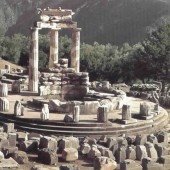
In her vision for sustainability education, Esmeralda Guevara analyzes how Western culture seeks happiness to the exclusion of living a full life, which inevitably involves knowing pain. Material wealth can buy that happiness, but perhaps at the cost of spiritual fulfillment. By returning to the age-old creed “Know thyself,” argues Guevara, we begin down a road to sustainability that recognizes the importance of ecology as well as economics, and spiritual richness as well as material wealth.
Continue ReadingAbstract This study examined adults’ feelings towards the environment in relation to recalled memories of childhood play. Today’s adults often associate scouting, summer camps, or playing in a creek with environmental education, with positive affect. Tomorrow’s adults won’t have this experience base. Environmental education and outdoor play have become too formalized for children to benefit […]
Continue ReadingAbstract This article addresses the value of critical social theory (CST) to sustainability education in higher education. CST is a particularly challenging form of social critique, especially for those who are middle and upper class members of industrial societies. It is argued that important sustainability education opportunities raised by CST actually derive from the deeply […]
Continue ReadingDear Readers, We hope that this first issue of the Journal of Sustainability Education (JSE) is the beginning of something that will last for decades to come. We believe that the human systems and institutions currently operating are often at odds with long term health of our planet. The social justice and environmental movements have […]
Continue ReadingAbstract An innovative framework for sustainability helps investigate the impacts of real estate development and educational attainment of newcomers; more specifically, landscape transformation due to ‘amenity migration’ into the Global South. We argue that sustainability research requires a de-categorization from mutually exclusive ‘human’ and ‘nature’ divisions, to refocus on intersections of multiple and complex socio-environmental […]
Continue ReadingAbstract Tropical mountain communities are susceptible to natural hazards due to severe local landscape features. In addition, their peripheral network of disaster mitigation can be meager leading to population loss, not only from the death toll of catastrophic episodes, but also, by overall attrition due to failing socioeconomic ventures that fuel emigration. For sustainable development, […]
Continue ReadingAbstract This paper introduces a comprehensive plan for integrating sustainability education into the practices of nearly any college or university. Best practices in sustainability education including green orientation, first year education, graduation requirements, interdisciplinary education, the campus as a model sustainable community, and sustainability-focused academic programs are combined to construct a comprehensive, easy-to-replicate strategy that […]
Continue ReadingAbstract As the environmental movement grows into a broader sustainability revolution, we must move beyond the traditional scope of environmental education to address social-ecological challenges through integrated education for sustainability. This paper proposes that the purpose of sustainability education is to foster a community culture that will promote the emergence of sustainability in complex adaptive […]
Continue ReadingAbstract Today we find ourselves standing in the crossroads of our future. Will we learn from our past mistakes and successes or become yet another story of societal and ecological collapse? As sustainability educators we are called to consider our contribution to education innovation by asking, as does Stephen Sterling (2001), what is education innovation, […]
Continue ReadingAbstract Through innovative partnerships, programming and platforms, sustainability education can be enhanced. Unique approaches as crystallized in a Sustainability Seminar, an annual Dialog on Sustainability, and an annual Sustainability Conference have enriched sustainability education at Kansas State University and throughout the region. Multidisciplinary members of diverse partner organizations of the Consortium for Environmental Stewardship and […]
Continue ReadingAbstract This paper addresses 1) the crucial importance of a multi-dimensional vision and approach to sustainability (Wheeler, 2000) and 2) the human responsibility to work toward that end through a transformation in consciousness and action, which ideally will assist in righting humanity’s relationships with itself, all other beings, and the biosphere. The concepts of sustainability […]
Continue ReadingMay 10, 2010 Dear New JSE Readers, And new you must all be as we launch our inaugural edition of the Journal of Sustainability Education (JSE, as we’ve become better known). Our hope is that what you find here will provide, as guest editor Dan Garvey puts it, a guide to how we can teach […]
Continue Reading